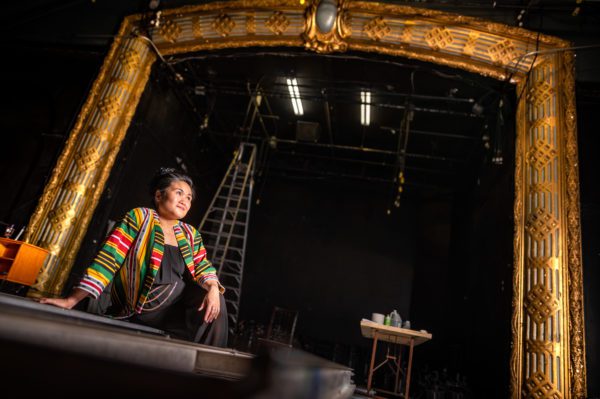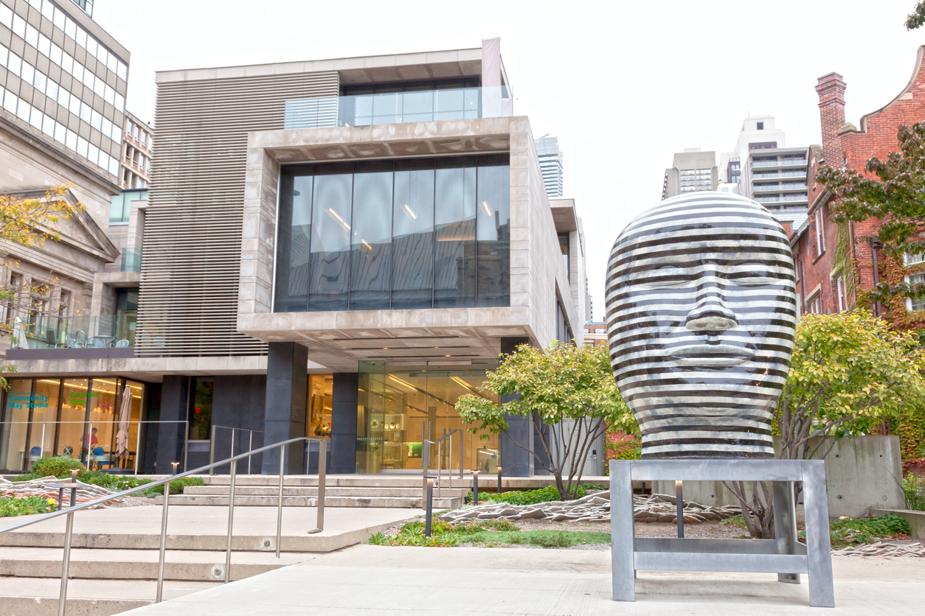
Factory Theatre launches 2021/22 season
By Jordan Z. Adler

As a Filipina-Canadian theatre director and dramaturge, Nina Lee Aquino has pushed against showing versions of Canada on stage that conform to a certain view of the country. The artistic director of Toronto’s Factory Theatre for more than a decade, Aquino’s hopes for a less homogenous cultural landscape can be seen in the productions staged under her tenure.
“The definition of Canadian has opened up,” Aquino says, reflecting upon the idea that to some, Canadian stories often mean stories centered on white people. “How can you be national when we’re living in a post-national world?”
“It is ok that our identity is patchwork. What’s interesting to me are the intersections, the threads that hold this really interesting quilt that we’re all wearing together.”
But that evolving vision of what a Canadian production looks like, and whose perspectives it examines, has met a peculiar obstacle. In a world transformed by a pandemic, who is the theatre for, and how can it sustain if live, communal experiences contain potential health risks?
Those questions have been palpable for creative arts practitioners across the world. For Aquino, though, Canadian theatre will survive long after her term as Factory’s artistic director ends in spring 2022. It just may not look or sound the same as spectators remember.

The theatre’s 2021-2022 season, aptly named “SHIFT” and premiering in October, indicates some of those changes. It will begin with four digital productions. The season then plans to conclude in spring 2022 with two in-person shows staged in the Factory Mainspace in downtown Toronto. (One hopes that by April, lockdowns will have receded into memory.)
“I am no longer responding to the virus,” Aquino says of the upcoming shows. “I am proposing that this could be a possibility of what a theatre season could be for the future.”
The four virtual productions will be presented in a number of formats. acts of faith, which Aquino directed and stars Natasha Mumba, will open the season in October. In the play, Mumba plays Faith, a witty, confident 12-year-old growing up in Zambia who is mistaken for a prophet.

That show will be a filmed re-broadcast of one of Factory’s biggest hits. More than 3,200 people watched acts of faith during its 2020 premiere. Considering that audiences could view that show around the world, Aquino says this encore presentation will be presented at a variety of showtimes “Cineplex-style,” to cater to viewers in numerous time zones.
The second production, co-presented with Obsidian Theatre, is Cast Iron, a live audio drama meant to replicate the form of a radio drama. Starring Alison Sealy-Smith and set in a Winnipeg nursing home, the one-person show uses a darkly comic tone to explore serious subject matter. It will also be presented with the accompaniment of musicians and a Foley artist, and will be performed and mixed live each night.
Year of the Rat, the next virtual production, will bring together four revered Canadian playwrights, including Charlotte Corbeil-Coleman and Anita Majumdar. Each creator will perform their respective work from their homes.

Then, You Can’t Get There from Here, Vol. 2 is what Aquino labels a “podcast play,” meaning audiences can listen to these short plays from anywhere if they download the show. The audio dramas in the previous volume immersed listeners in a number of Toronto neighbourhoods and local landmarks, offering spectators a way to escape from the Zoom screen and explore the city without leaving home.
This second volume – including original works from Marjorie Chan (Lady Sunrise), Ins Choi (Kim’s Convenience), and Kat Sandler (Mustard) – will again focus on Toronto spaces. It will be available on podcasting platforms in March 2022.
Finally, the in-person productions include the world premiere of David Yee’s Among Men, directed by Aquino. Set along Ontario’s Robin Lake, the play focuses on revered Canadian poets (and good pals) Al Purdy and Milton Acorn.
The final show of the season is the Toronto début of Wildfire, an adaptation of David Paquet’s award-winning Le Brasier. Prolific Iranian-Canadian director and actor Soheil Parsa will helm the play. Described as a “dark comedy with a spark,” the show will delve into themes of childhood trauma and resilience.

To Aquino, despite the limitations of the previous year, it was not a challenge to devise a program for a virtual season. Independent artists around the country hadn’t stopped working. “It was a lot of amazing, young emerging artists trying something new with Zoom [and] different platforms,” she says. “I was happy to support whoever was doing the work.”
From the perspective of being stuck in lockdowns, there was not just a hunger among local creatives to keep telling stories. The tales of the pandemic – one that more severely punished the elderly, as well as certain communities of colour – connect with social injustices across the country.
“I just refuse to make those stories fade away because we can’t gather physically,” Aquino says.
That requires re-conceiving the stage to not just feature a diversity of stories, but a diversity of audience members, including those who do not have the same access to a Factory production. Part of the appeal of these virtual shows is their accessibility.
“Different kinds of barriers…are preventing our audiences from going, physically, to our theatres,” Aquino says. “We need to start thinking bigger, delivering stories in as many creative ways as possible.”
However, there have been other adjustments and adaptations along the way. For actors in virtual productions during the past year, there was an obvious change in atmosphere: they couldn’t hear audience responses, like laughing or clapping.
“I’m most proud of not giving in to my doubts,” Aquino says, reflecting on the last year-and-a-half of artistic flux and distanced digital experiments. “I actually surprised myself and my team. We know a lot more than we think we do.”
Aquino joined as Factory’s artistic director in 2012, becoming the first woman of colour to occupy that role in the theatre’s history. Plays by BIPOC (Black, Indigenous, and People of Colour) Canadians are now the norm at Factory Theatre, rather than the token exception.
Even as her time winds down as Factory’s artistic director, Aquino says her main goal is to continue delivering urgent and engaging stories to an audience. Despite the recent lockdowns in Toronto, that the theatre continued to stage shows – even from a distance – is a testament to the continuing power of storytelling.
Of a less-conventional season of fresh Canadian drama, Aquino has one piece of advice for more reticent theatregoers: “Just try it before you knock it.”
For more information on Factory Theatre’s new season, visit www.factorytheatre.ca




